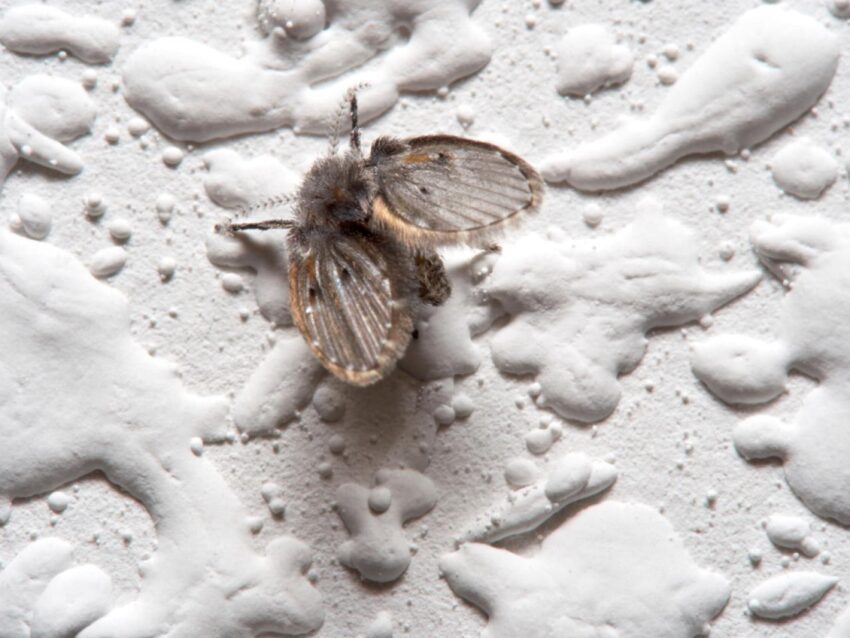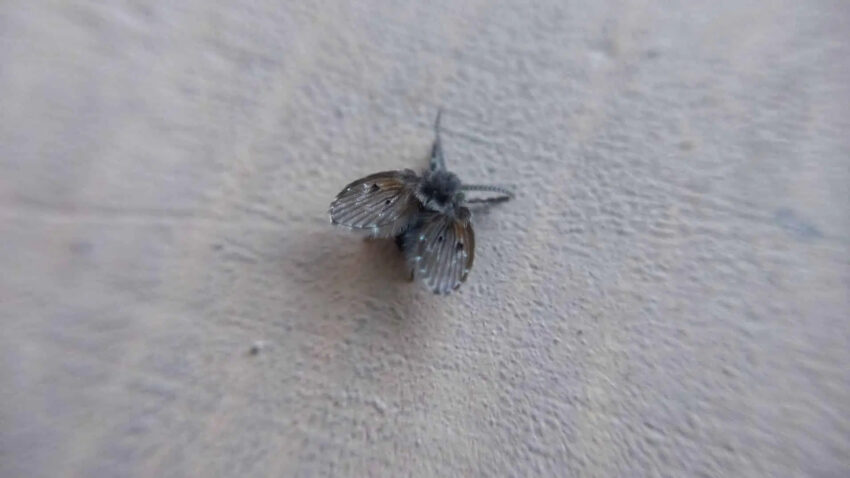
18 May How to Kill Drain Flies
Drain flies, also known as moth flies or sewer flies, can be quite a nuisance when they infest your home. These tiny, flying insects are commonly found in bathrooms, kitchens, and other areas with drains. If you’re dealing with a drain fly problem, don’t worry! In this article, we’ll guide you on how to effectively get rid of drain flies and prevent future infestations.
What are Drain Flies?

Image source: Google.com
Drain flies are small insects that belong to the family Psychodidae. They are typically gray or brown in color and have a fuzzy appearance. These flies are attracted to moist environments, particularly drains, where they lay their eggs. The larvae of drain flies feed on organic matter found in drains, such as food particles and sludge. To get a better understanding of their habitat and behavior, you might find it helpful to refer to a bathtub drain diagram.
Identifying Drain Flies
Before you start eliminating drain flies, it’s important to confirm their presence. Drain flies are often mistaken for fruit flies due to their small size and flying behavior. However, there are some key differences to help you identify drain flies correctly. Drain flies have a more robust body and hairy wings compared to fruit flies. They are also usually found near drains or stagnant water sources.
Understanding Drain Fly Infestations
Drain fly infestations can occur when there is a buildup of organic matter in drains or if there are leaks or cracks that allow the flies to breed and multiply. These infestations can be frustrating, as drain flies are persistent and can quickly populate your home. It’s crucial to address the root cause of the infestation to effectively eliminate the drain flies.
Why Should You Get Rid of Drain Flies?
Apart from being a nuisance, drain flies can also pose potential health risks. They can contaminate surfaces and food with bacteria from the organic matter they feed on. Additionally, their presence can be unsightly and create an unhygienic environment. Getting rid of drain flies is essential for maintaining a clean and healthy home.
Prevention Methods
Preventing drain fly infestations is key to avoiding the hassle of dealing with these pests. Here are some preventive measures you can take:
- Seal cracks and leaks: Inspect your plumbing system for any cracks or leaks that might attract drain flies. Seal them properly to eliminate potential breeding grounds.
- Keep drains clean: Regularly clean your drains using a drain brush or a mixture of baking soda and vinegar. This will help remove any organic matter that could attract drain flies.
- Install drain covers: Installing drain covers or screens can prevent drain flies from entering your pipes and drains.
- Maintain proper ventilation: Ensure there is adequate ventilation in areas prone to moisture, such as bathrooms, to discourage drain flies from breeding.
Natural Remedies
If you prefer eco-friendly methods to eliminate drain flies, there are several natural remedies you can try:
- Boiling water: Pouring boiling water down drains can kill drain fly larvae and flush out any organic matter that may be attracting them.
- Baking soda and vinegar: Create a mixture of baking soda and vinegar, and pour it down the drain. The foaming action can help dislodge larvae and clear clogs.
- Essential oils: Certain essential oils, such as tea tree oil or eucalyptus oil, have insect-repellent properties. Dilute a few drops of the oil in water and spray it around drains and infested areas.
- Homemade traps: Create a simple trap by filling a bowl with apple cider vinegar and covering it with plastic wrap. Poke a few small holes in the plastic wrap. The scent of vinegar will attract the drain flies, and they will get trapped inside the bowl.
Chemical Solutions
If the infestation persists or natural remedies are not effective enough, you may consider using chemical solutions:
- Drain cleaners: Use drain cleaning products specifically designed to eliminate organic matter and larvae in drains. Follow the instructions carefully and ensure proper ventilation when using these products.
- Insecticides: There are insecticides available in spray or fogger forms that can help eliminate drain flies. Read the product labels and use them as directed.
Remember, when using chemical solutions, always prioritize safety. Keep children, pets, and yourself away from treated areas, and follow the manufacturer’s instructions for proper usage.
Maintaining a Clean Drain
Regular maintenance of your drains is crucial in preventing future drain fly infestations. Here are some tips to keep your drains clean:
- Flush drains regularly: Run hot water down the drains periodically to flush out any organic matter and keep the pipes clear.
- Use drain strainers: Install drain strainers or screens to catch food particles and debris before they enter the drain.
- Avoid pouring grease: Grease and oil can solidify in drains, creating a breeding ground for drain flies. Dispose of grease properly instead of pouring it down the drain.
Professional Pest Control
If you’ve tried various methods and the infestation persists, it may be time to seek professional pest control services. Pest control experts have the knowledge, experience, and resources to effectively eliminate drain flies and provide long-term solutions. They can assess the severity of the infestation, identify breeding areas, and implement targeted treatments to eradicate drain flies from your home.
Conclusion
Dealing with drain flies can be frustrating, but with the right approach, you can effectively eliminate them and prevent future infestations. Remember to identify the drain flies correctly, implement preventive measures, try natural remedies or chemical solutions when necessary, and maintain clean drains. If all else fails, don’t hesitate to contact professional pest control services for assistance. By taking proactive steps, you can regain control of your home and enjoy a fly-free environment.
You may like to read Aspects of Wandering Jew Plant Care

Sorry, the comment form is closed at this time.